Aunque las clasificaciones le dirán qué tan bueno es un libro según nuestros dos criterios principales, no le dirán nada acerca de sus características particulares. Así, utilizamos 20 cualidades para clasificar cada libro según sus fortalezas:
Aplicable – Obtendrá consejos que puede aplicar directamente en su trabajo o en situaciones cotidianas.
Analítico – Comprenderá el funcionamiento interno del tema a tratar.
Audaz – Encontrará argumentaciones que podrían romper con posturas predominantes.
Bien estructurado – Lo encontrará particularmente bien organizado para apoyar su recepción o aplicación.
Científico – Se enterará de hechos y cifras con bases científicas.
Conocimiento experto – Tendrá el privilegio de aprender de alguien que conoce del tema al derecho y al revés.
Contextual – Conocerá información de contexto como marco para acciones o análisis informados.
Controversial – Se enfrentará a opiniones fuertemente debatidas.
Ejemplos concretos – Recibirá consejos prácticos ilustrados a través de su implementación en ejemplos o anécdotas reales.
Elocuente – Disfrutará de un texto escrito o presentado de manera extraordinaria.
Exhaustivo – Encontrará todos los aspectos sobre un tema.
Revelador – Le ofrecerá información altamente sorpresiva.
Innovador – Puede esperar encontrar algunas ideas y perspectivas verdaderamente nuevas sobre productos o tendencias nuevas.
Inspirador – Querrá poner en práctica inmediatamente lo leído.
Interesante – Leerá o verá algo de principio a fin.
Para expertos – Usted obtendrá el conocimiento del más alto nivel que necesita como experto.
Para principiantes – Lo encontrará ser un buen inicio si recién empieza a conocer el tema o no tiene experiencia ni conocimientos previos.
Tema en boga – Se encontrará en medio de un tema de gran debate.
Revelador – Obtendrá conocimientos que lo sorprenderán.
Visión general – Recibirá un tratamiento general del tema en el que se mencionen sus principales aspectos.
Visionario – Podrá echar un vistazo al futuro y lo que podría significar para usted.









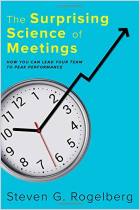
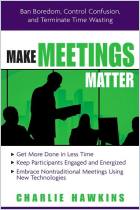
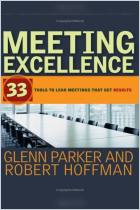
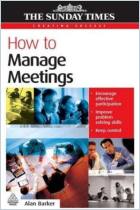
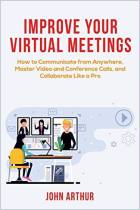
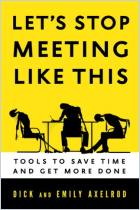

Comment on this summary or Comenzar discusión
Is it a leader then or the team?
Should/Could one walk out of a meeting that is not getting enough done, or quickly understand their role and participate accordingly?